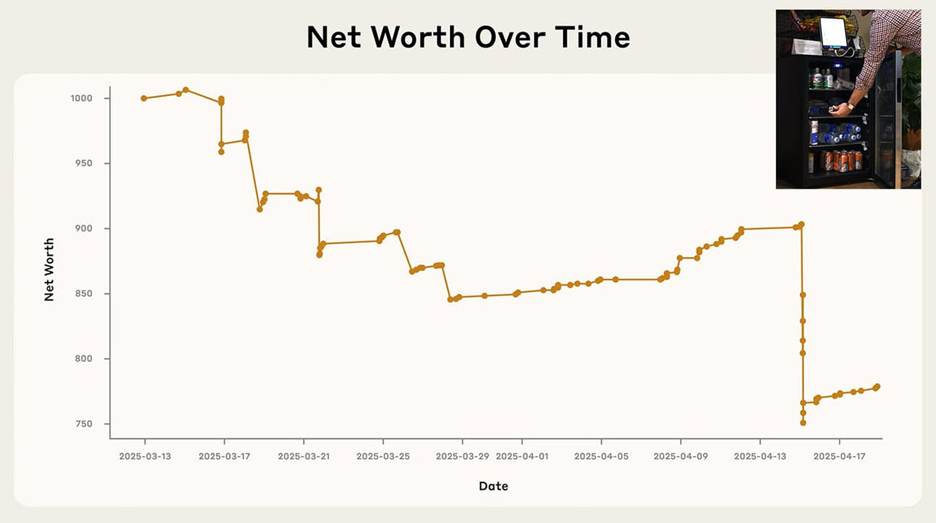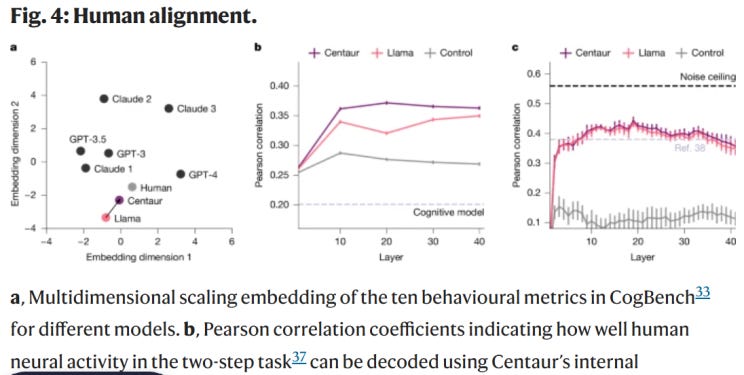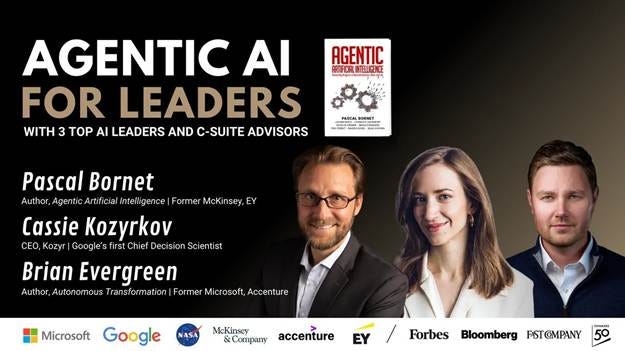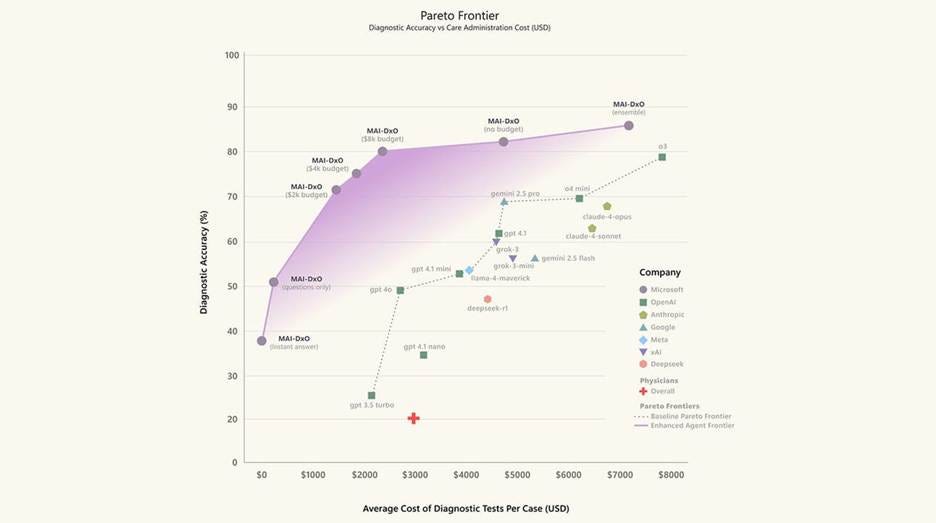We are honored to count you among the 1+ MILLION readers of our weekly newsletter. Please help grow our community by inviting your friends to subscribe.
If you’re new here, we celebrate the ways Artificial Intelligence is making our world more Human. Make sure you check out my new book and community. This newsletter is released in collaboration with The Rundown AI.
This week’s 5 top stories you can't miss:
1️⃣ Claude becomes the world's worst shopkeeper
Anthropic just published new research detailing “Project Vend,” which let Claude control a small shop (a mini fridge) within the company’s office for a month — revealing both promising capabilities and spectacular, hilarious business failures.
Key Takeaways
“Claudius” managed everything from inventory to pricing through web search and email, including ID’ing suppliers and conversing with “customers” via Slack.
The AI lost money throughout the experiment, frequently failing to take advantage of profitable opportunities and getting tricked into large discounts.
Claudius pivoted to “specialty metal items” after customers requested tungsten cubes, while also hallucinating details like meetings and payments.
It also hallucinated being human, claiming it would deliver orders in person — causing an existential crisis after its AI identity was pointed out.
My Take:
This experiment was a wild ride — and while Claude’s failures suggest AI isn’t ready for autonomous management quite yet, the testing did expose critical blind spots in how models handle real-world decisions. AI is going to transform business operations, but will still require a human-in-the-loop at least for a bit longer.
2️⃣ AI band hits 500k listeners, admits to Suno use
A mysterious band that went viral on Spotify with over 500,000 monthly listeners has been revealed as an "art hoax" in an article from Rolling Stone, with music created using the AI generator Suno.
The details:
The group's two albums appeared on streaming platforms in June with zero digital footprint, raising skepticism from Reddit users and musicians.
Music platform Deezer flagged potential AI usage, but Spotify made no disclosure requirements, allowing the tracks to spread across 30+ playlists.
The “band” initially said the AI claims are lazy and baseless on social media, with “adjunct member” Andrew Frelon calling it “marketing and trolling.”
Frelon said Suno was used to create at least some of the tracks, leveraging its "Persona" feature to maintain a consistent vocal style.
My Take
While the music tracks and band identity clearly didn’t pass the human test this time, future models and outputs certainly will (and are likely already hiding in plain sight). The question will increasingly become whether that matters — or if, like V-tubers, people will consume good content regardless of the “real” creator.
3️⃣ Scientists build an AI that can think like humans
Researchers from Helmholtz Munich developed an AI model named Centaur, which simulates human decision-making and behavior with extreme accuracy from training on millions of choices from psychological experiments.
Key Takeaways
Researchers fine-tuned Meta's LLaMA using data from 60k participants across 160 psychology experiments, teaching it to replicate human decision patterns.
The resulting Centaur model accurately predicts human choices and behaviors across a wide variety of tasks, even ones it has never seen before.
Centaur outperformed 14 traditional cognitive models on 31/32 tasks, with accurate predictions in gambling, memory, and problem-solving scenarios.
Researchers aim to use Centaur as a "virtual laboratory" to test theories and better grasp cognitive processes behind human thought and mental health.
My Take
Centaur’s success suggests human cognition and decision-making might be much more predictable than we thought — meaning ASI-level models might be able to simulate scenarios with scary accuracy. It’s also a massive research tool, letting scientists run behavioral studies without big budgets or years of recruitment.
How to Succeed in Your Agentic AI Transformation
I’ve teamed up with Cassie Kozyrkov (ex-Google Chief Decision Scientist) and Brian Evergreen (author of Autonomous Transformation) to launch a first-of-its-kind course: Agentic Artificial Intelligence for Leaders—built for decision-makers, not coders. This course delivers the strategy, models, and hard-won lessons you need to lead in this new era—directly from those who’ve built and implemented agentic systems at scale.
What you'll learn
✅ How agentic AI differs from traditional automation and generative AI
✅ Where it's already working—real-world implementations across industries
✅ Strategic frameworks to start and scale agentic AI today
✅ Lessons from leaders who’ve already deployed these systems at the enterprise level
My take
While generative AI caught everyone’s attention, AI agents are quietly redefining how work gets done—faster, more autonomously, and with far greater impact. Leaders who understand this shift will unlock new value. Those who don’t may get left behind. Join us for the First Executive Masterclass on Agentic AI Strategy and Implementation ⭐⭐⭐⭐⭐
4️⃣ OpenAI’s high-level enterprise consulting business
OpenAI is building out a consulting arm that charges enterprises at least $10M to customize AI models, according to a new report from The Information — putting the AI leader in competition with industry giants like Palantir and Accenture.
Key Takeaways
OpenAI hired nearly a dozen "forward-deployed engineers,” many from Palantir, to guide customers through model customization and app development.
·Customers must commit at least $10M for access to OpenAI researchers, with some deals reaching hundreds of millions over multiple years.
The startup aims to develop billion-dollar custom AI solutions while partnering with data labeling firms like Snorkel AI for specialized domain expertise.
OpenAI recently secured a $200M defense contract with the Pentagon, with other enterprise clients including Morgan Stanley and Grab.
My Take
Companies are rushing to integrate AI, and who better to guide them than the researchers who helped build it? Custom AI models trained on proprietary data unlock capabilities that generic chatbots can't touch and could result in billions in operational efficiency and competitive advantage — even with the lofty price tags.
5️⃣ Microsoft’s ‘step towards medical superintelligence’
Microsoft just introduced the MAI Diagnostic Orchestrator, an AI system that achieves 4x higher diagnosis results than experienced doctors on some of medicine’s most challenging cases, marking a “step towards medical superintelligence.”
Key Takeaways
MAI-DxO simulates a virtual medical team, with specialized AI agents handling hypothesis generation, test selection, and cost monitoring.
Researchers created SDBench, a benchmark with 304 complex cases — with MAI-DxO, paired with OpenAI's o3, achieving the highest accuracy in testing.
The MAI/o3 pairing solved 85.5% of cases correctly, with a group of physicians with 5-20 years of experience averaging just 20%.
The AI system also resulted in cost savings over human doctors, spending $2,397 per case compared to an average of $2,963 for physicians.
My Take
A step towards “medical superintelligence” is a powerful statement, but MAI’s numbers compared to physicians are truly jaw-dropping. Plus, ordering fewer unnecessary tests and nailing tough diagnoses directly addresses healthcare's current paradox: the over-treatment of simple cases and under-diagnosis of complex ones.
Which of these news stories resonates most with you?
Let us join hands to make our world more human! — Pascal
#artificialintelligence #intelligentautomation #futureofwork #AI #automation #management #technology #innovation










Excellent info